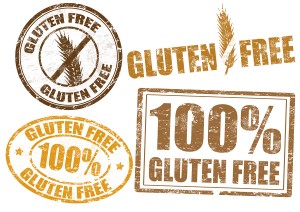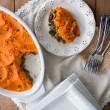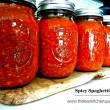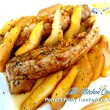One of the hottest diet trends occurring right now is the whole ‘gluten intolerance’ notion. Many people are jumping to the conclusion that they are gluten intolerant and that if they want to not only see fat loss success but also feel well on a day to day basis, they must be consuming a gluten free diet.
But, what is the truth about gluten? Is it really as bad as some people come to believe?
Let’s take a closer look at what you need to know about gluten and gluten intolerance.
What Is Gluten?
Gluten is a type of protein that’s found in wheat based foods and products that can start to cause some people some distress upon consumption. Gluten is also found in related products to wheat including barley and rye, so those who are following a gluten free diet have to cut out all foods containing these proteins.
This can make for a very limiting diet and very often will cause the individual to just adopt a lower carb approach.
What Is Gluten Intolerance
So what happens when you have gluten intolerance? Essentially those who have gluten intolerance are not able to break down gluten as they should so when they consume it, stomach pain, along with numerous other gastrointestinal side effects may occur.
 In very serious conditions, the person may suffer from Celiac disease, in which eating gluten containing foods can actually cause serious physical harm and these individuals very often become malnourished because of it. They have to plan out their diet very carefully to ensure they are meeting all their energy and nutrient needs on a regular basis.
In very serious conditions, the person may suffer from Celiac disease, in which eating gluten containing foods can actually cause serious physical harm and these individuals very often become malnourished because of it. They have to plan out their diet very carefully to ensure they are meeting all their energy and nutrient needs on a regular basis.
Does Gluten Consumption Influence Fat Loss Results?
But what about gluten and fat loss? That’s the real question that most people want to know here. Will consuming gluten hinder the fat loss results that you see?
The key thing to know is that gluten in itself doesn’t impact fat loss. Calorie balance impacts fat loss. While it is true that many gluten containing foods may increase insulin levels since they spike blood sugar, this doesn’t mean that eating them will directly cause you to gain body fat.
More than the gluten itself, it’s the type of foods that contain gluten that are the problem.
If you eat oatmeal for example, which is often restricted on gluten free diets, you won’t be gaining fat because of it. Oatmeal is a very good source of complex carbohydrates and is a great choice for active individuals.
On the other hand, if you fill your diet full of white bread, which also contains gluten, then you could be setting yourself up for fat gain down the road.
So as long as you aren’t actually intolerant to gluten, don’t fear it quite so much. Make smarter food choices containing gluten and you can still reach your weight loss goals with ease. Gluten isn’t the evil so many people make it out to be unless you do actually have health concerns revolving its breakdown.
What is your approach? Gluten free or not?














13 Responses on The Truth About Gluten

Rich Bessey says:
January 2, 2013 at 7:24 am

Karine Losier says:
January 4, 2013 at 12:05 am

Noah says:
January 2, 2013 at 10:16 am

Sandy says:
January 2, 2013 at 11:01 am

Angel says:
January 2, 2013 at 12:37 pm

Karine Losier says:
January 4, 2013 at 12:27 am

Sara says:
January 2, 2013 at 12:17 pm

Julia says:
January 2, 2013 at 2:30 pm

Samantha Rayment says:
January 2, 2013 at 8:22 pm

Karine Losier says:
January 4, 2013 at 12:28 am

Karen says:
January 6, 2013 at 8:20 pm

Karine Losier says:
January 10, 2013 at 6:04 am

laura Hughes says:
January 6, 2013 at 10:37 pm